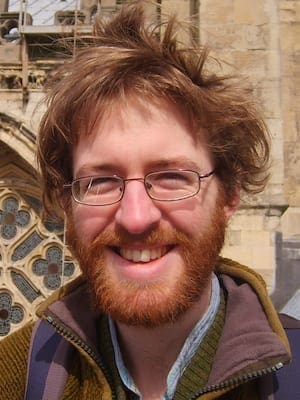How do we confront the structural challenges that break people, rather than offer sticking-plaster solutions?
I was invited recently to talk about “patterns of need on the Isle of Man.”
I joined colleagues from other charities and agencies as we shared about growing numbers of people in food and fuel poverty, about the prevalence of ill mental health, about the chronic loneliness and misery found in so many exploitative boarding houses.
All this on an island whose economy continues to grow and where the e-gaming sector posts ever-increasing profits.
You would think that something might be wrong.
All those talking that night were sticking-plaster agencies, busy helping people to stay alive, fed and sheltered. They are scrambling for scant resources, often relying on volunteers and seeing increasing demand.
I guess it’s a similar situation to many charities across the United Kingdom and further afield.
No one seems to ask why it is these people need a sticking plaster in the first place. If there’s a war out there and we’re trying to tape up the wounds, is there anyone seeking to bring peace? If we’re spending all our time pulling people out of the river, who is pushing them in?
The bigger structural questions are harder to see and grasp because they are bound up with the environment in which we live and move and have our being. The problems seem “normal” because we don’t glimpse an alternative.
It’s far easier to talk about how we can creatively use our surplus church rooms for storing furniture for people in need or collecting food and clothing to donate or volunteering in our spare time.
They seem practical, necessary things; so they are. But we’ll be putting on those sticking plasters for a long, long time.
So many of the guys I know at Graih, a charity serving those who are homeless and in insecure accommodation on the Isle of Man, exist in unsuitable accommodations and have a very limited view of the world.
Their choices are largely determined by the environment they live in. You can’t choose to cook a cheap, nutritious meal when you have no access to cooking facilities. You can’t choose to step into employment when employers don’t want to consider people with mental health problems.
You can’t choose to do positive activities when you have no self-worth, when you could be evicted at any time, when your sanitation facilities are intermittent and the whole building is noisy, chaotic and full of other people just like you.
The loneliness and despair set in quickly, further narrowing your horizons and determining your choices.
That situation is many things, but it is not freedom.
As always, those on the edge can teach us. What if we transpose that same constrained, limited existence to ourselves?
We exist in a highly individualized, consumer-driven, economically determined society. Does that put limits on what the church can imagine or do? Are we free?
Huge corporations make immense profits while creation is exploited and people line up at food banks.
Vast amounts of resources are poured into propping up a financial system that has fundamentally failed multiple times while health services are stripped.
We are told there is no alternative. Is this true?
Take money, since so much of what we deem possible seems to be determined by it.
Most money doesn’t exist, save as numbers on a screen. There’s nothing “real” behind it. It works because we all want it to work and believe in it, but essentially it’s an illusion.
It seems no more mad to me to suggest that in the abundance of God’s good creation everyone should have enough to eat and somewhere safe to live, that everyone should have access to good healthcare, that we should practice ways of life that don’t destroy the environment.
If we’re going to believe in illusions, that seems a good place to start.
If there is any group of people in a society able to see through the falsehoods offered to us by entrenched wealth and power, it is the church.
Jesus opens the eyes of the blind, sets the captives free and offers us the gift of new creation.
We are born into reality, not illusions. It is a reality marked not by constrained possibilities and numbers on screens but by the inexhaustible depths of faith, hope and love, by the justice and peace of the kingdom.
Dom Helder Camara, a Latin American bishop, once said, “When I feed the poor, they call me a saint. When I ask why the poor are hungry, they call me a communist.”
We shouldn’t care what they call us, but we should care about why people are broken.
We should care about the environment we live and move and have our being in.
We should care enough to not only get angry but stirred up to glimpse the vision of a different, better, far more real world that God holds out for us.
It’s a glorious invitation.
Michael Manning is a coordinator with Graih, a charity serving the homeless in the Isle of Man. He lives with his family in a shared household and is the author of “No King but God: Walking as Jesus Walked” (Resource Publications). A version of this article first appeared in The Baptist Times – the online newspaper of the Baptist Union of Great Britain. It is used with permission.
Michael Manning is a co-ordinator of Graih, a charity serving those who are homeless and in insecure accommodation on the Isle of Man. He lives with his family in a shared household and belongs to Broadway Baptist Church in Douglas. He is the author of “No King, But God – Walking as Jesus Walked.”

